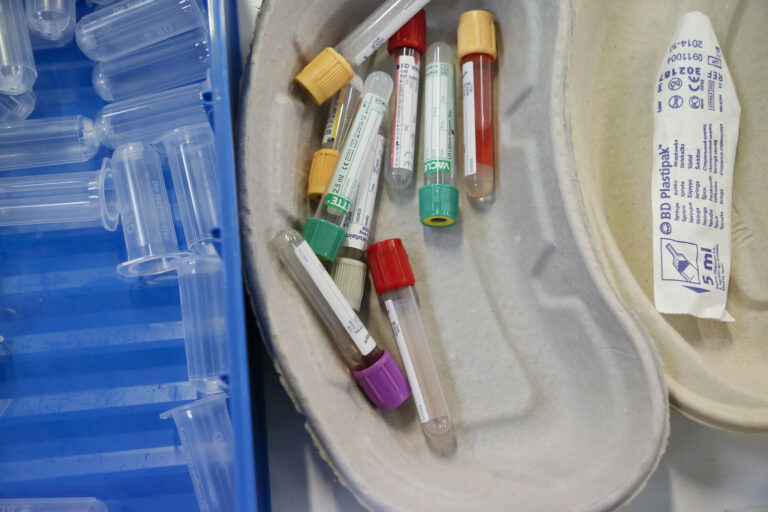
Ethics and quality of drug testing in low income countries subject to additional pressure through outsourcing
Testing drugs on people in low income countries incurs more risks than previously discovered. The reason is that more than half of the drug tests are outsourced to subcontractors by pharmaceutical companies. This has put the quality and ethics of the drug tests under pressure. Moreover, there is no independent monitoring system. This is demonstrated by the report: “Putting Contract Research Organisations on the Radar” that SOMO publishes today in collaboration with the Latin American organisation Salud y Fármacos and the Indian Centre for Studies in Ethics and Rights.
In the same way that Dell and HP no longer manufacture their own computers, the large pharmaceutical companies are often no longer testing the drugs themselves. They commission Contract Research Organisations (CROs) to carry out these tests in low income countries with large populations of poor, uninsured and illiterate people. They can easily recruit cheap trial subjects there. The problems caused by the enormous flood of clinical trials in countries such as India and Brazil in the past years have been known for a while now. The lack of monitoring is also well known. What is new is that now most drug testing is carried out by CROs that pride themselves on operating faster and cheaper than pharmaceutical companies. As a result, adherence to ethical standards comes under pressure and responsibilities become increasingly less well defined. The drugs that are tested by CROs are released into the Dutch market, among others.
There are many types and shapes of CROs ranging from small companies that manage a research location to multinational corporations such as Quintiles and Covance that measure up large multinational companies. In most developing countries all it takes to be able to start testing drugs on people is a registration with the local chamber of commerce. The study published today shows the various risks that are attached to CROs carrying out these tests: loss of insight into clinical trials due to fragmenting of the responsibilities as a consequence of subcontracting, poor monitoring of CROs and inadequate turnover of labour quality of CROs,. In particular the quality of smaller nationally operating CROs causes concerns. Experts and involved parties express great concern regarding the quality and ethics of the drug tests carried out by the CROs, because financial costs and time considerations are given priority.
“Pharmaceutical companies assure us that they closely monitor the compliance to ethical standards of their contract partners, but it seems foolish to believe the actors who have the largest stake in positive test results on the strength of their word. However, that is how the current situation stands: independent monitoring of clinical trials in developing countries leaves much to be desired,” says author and SOMO researcher Mariëtte van Huijstee. The authors of the report call for mandatory registration of all parties involved in clinical trials worldwide. They also urge increased and improved inspection of clinical trial locations in developing countries and involvement of independent parties in the control mechanisms of the pharmaceutical industry.
Download Putting Contract Research Organisations on the Radar
Related news
-
 EU health data law rolls out the red carpet for Big TechPosted in category:Long read
EU health data law rolls out the red carpet for Big TechPosted in category:Long read Irene SchipperPublished on:
Irene SchipperPublished on: -
Civil society coalition urges EU to put the interests of patients and citizens at the heart of the European Health Data SpacePosted in category:Published on:Statement
-



